Visibility, Vulnerability and Strength: An Interview with Thao Nguyen
[This feature was originally published in the tenth issue of She Shreds Magazine, May 2016 and has been edited for timely accuracy.]
The past eight years have paid witness to many notable contributions from Thao & The Get Down Stay Down: four albums; countless tours headlining as well as supporting the likes of The Decemberists, The New Pornographers, and Rilo Kiley; Thao Nguyen’s effectual prison reform work; and now A Man Alive, a new record produced by Merrill Garbus (tUnE-yArDs), out March 4th on Ribbon Music.
As with all Thao & The Get Down Stay Down records, the production and arrangement detail on A Man Alive—along with the technical prowess of the players—is noteworthy and exceptional, but Thao’s lyrics have always been the most compelling component to me. There is something emotionally evocative, yet abstract about them—ideas that are, at once, universally relatable but rarely written as direct narratives. In our conversation, Thao discusses embracing vulnerability, experimenting with her process, and the work that influenced her on the new record.
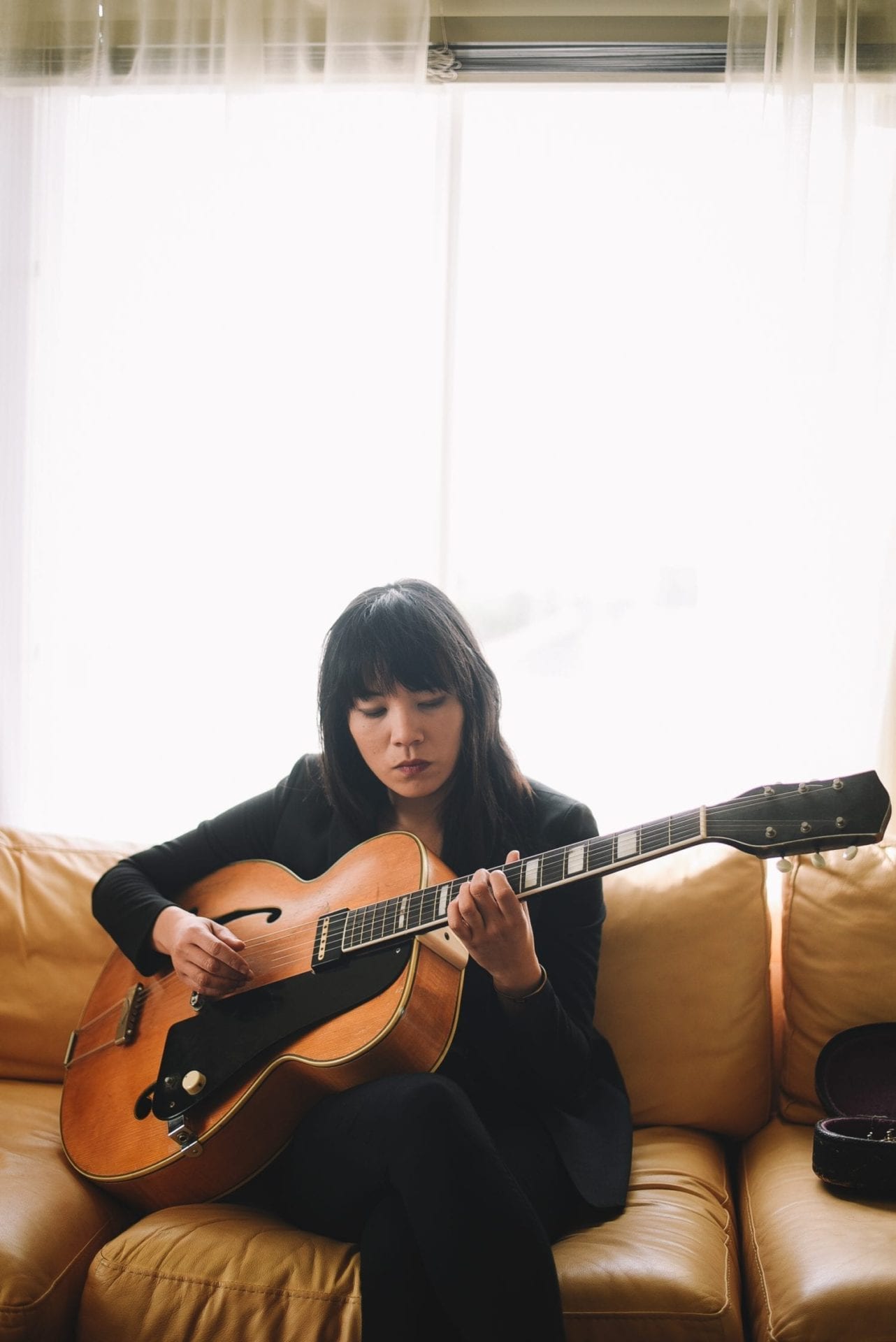
She Shreds: I feel like there’s a poetic element to your lyrics that sets itself apart from a lot of other indie rock records—do you have a particular writing process or practice that you engage in?
Thao Nguyen: As a listener and a songwriter, lyrics are the most important part to me. For this record, I was waking up in the morning and writing a few pages and then going back and mining for potential lyrics or phrases that I wanted to build upon. I was definitely fueled by a lot of things I was reading. My favorite writers have always been the standard to which I’m trying to write lyrics. They are the greatest inspiration to me. I actually don’t listen to music that much.
Who were you reading at the time?
Marilynne Robinson’s Gilead was a really important part of determining what the vibe of this record would be. There’s one character [in] this scene that I read and I just wept, because it struck so close to home. That basically helped birth “Astonished Man” [the first track on the new record] and that song set the tone for the rest. George Saunders, I’m a huge fan of—I wish he was my dad. He’s a huge example of tapping into humanity, critiquing the pitfalls of how humans conduct themselves but in such a humane way.
I really took to the song “Guts” on the new record. I was wondering what the focal line, “I’ve got the guts/I don’t need the blood” means to you?
That one is most directly about my relationship with my dad. I’ve been able to raise myself without him, with whatever I had inside of me, with my guts, and I don’t need my blood, being him. There’s this obstinance and petulance, flashes of anger and “fuck you,” but at the same time there’s also deep grief and sadness and wishing things were different.
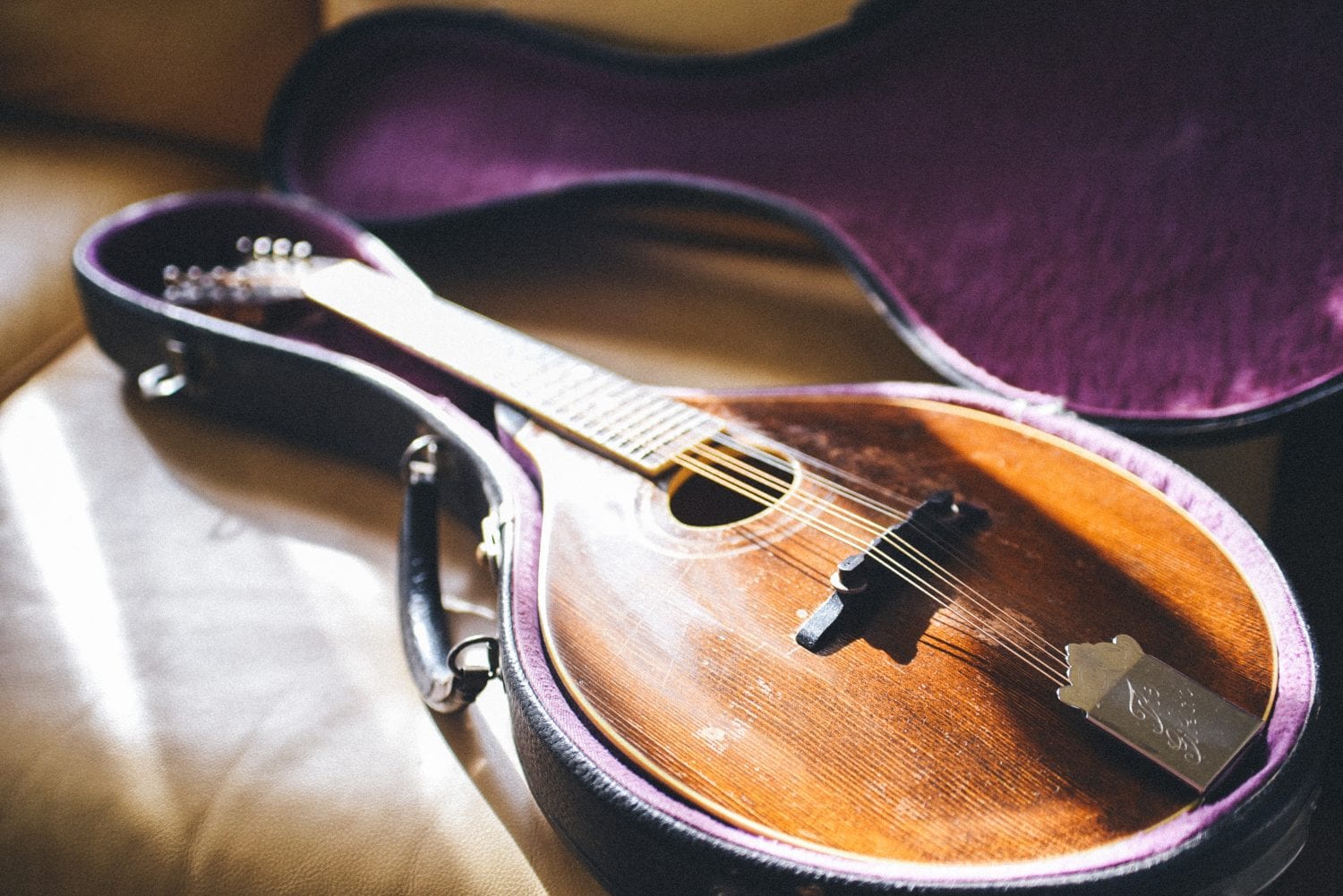
The press release mentioned that [the new album is] largely about your father. It seems he’s mentioned in earlier songs to some degree. I was wondering how your relationship to writing about this has changed over the years.
I wasn’t ready nor willing to write a record about him until a few months ago. You’re totally right—on other records there are songs that touch upon our relationship and reference it, but not in such a straightforward way, not in a deeply vulnerable way. I was getting to the point where I needed to think about it. I’m in my early 30s now and I’m getting to the point where this dude could die. I would wake up in a panic—“I don’t know what he’s doing, I have no idea about him.”
What I appreciate about the record is that it’s a trajectory of all of these emotions and ideas and feelings, but nothing linear. One song I’m really optimistic, and the next song, it’s like, “I don’t want anything to do with this.” It was really intense, it was a really emotional thing to do, and I thought it would be more productive.
You feel that the completion of the album wasn’t emotionally productive in that way?
I had these ideas, which propelled some of the songwriting, that I was moving to a different place with. I thought it would be more change. I thought, “Maybe I’ll call him,” or whatever, which I haven’t done. But it was really important to me. These were the songs that were going to exist in this time. I wanted to be performing songs that meant something emotionally to me, and it would be this vulnerability that is liberating and also necessary.
Thanks for going there with me. I’ll switch gears now … So, you worked with Merrill Garbus on the new record and you can definitely hear that collaboration. Could you tell me about what the pre-production and production process was like?
We talked a lot about what I wanted—sonically, the environment, and the atmosphere that would be the healthiest and the most productive in which to work. We’ve known each other for years and she always has this fearlessness and this “why the fuck not?” that I’ve always admired, and I needed that for this record.
I was writing everything on guitar and mandolin and banjo, but I wanted to base it on beats and bass and synth, and re-introduce my playing in more of a sample form. That freed me up to experiment with different tones and pedals and effects. We worked so well together. It was the best experience you could ask for [when] making a record.
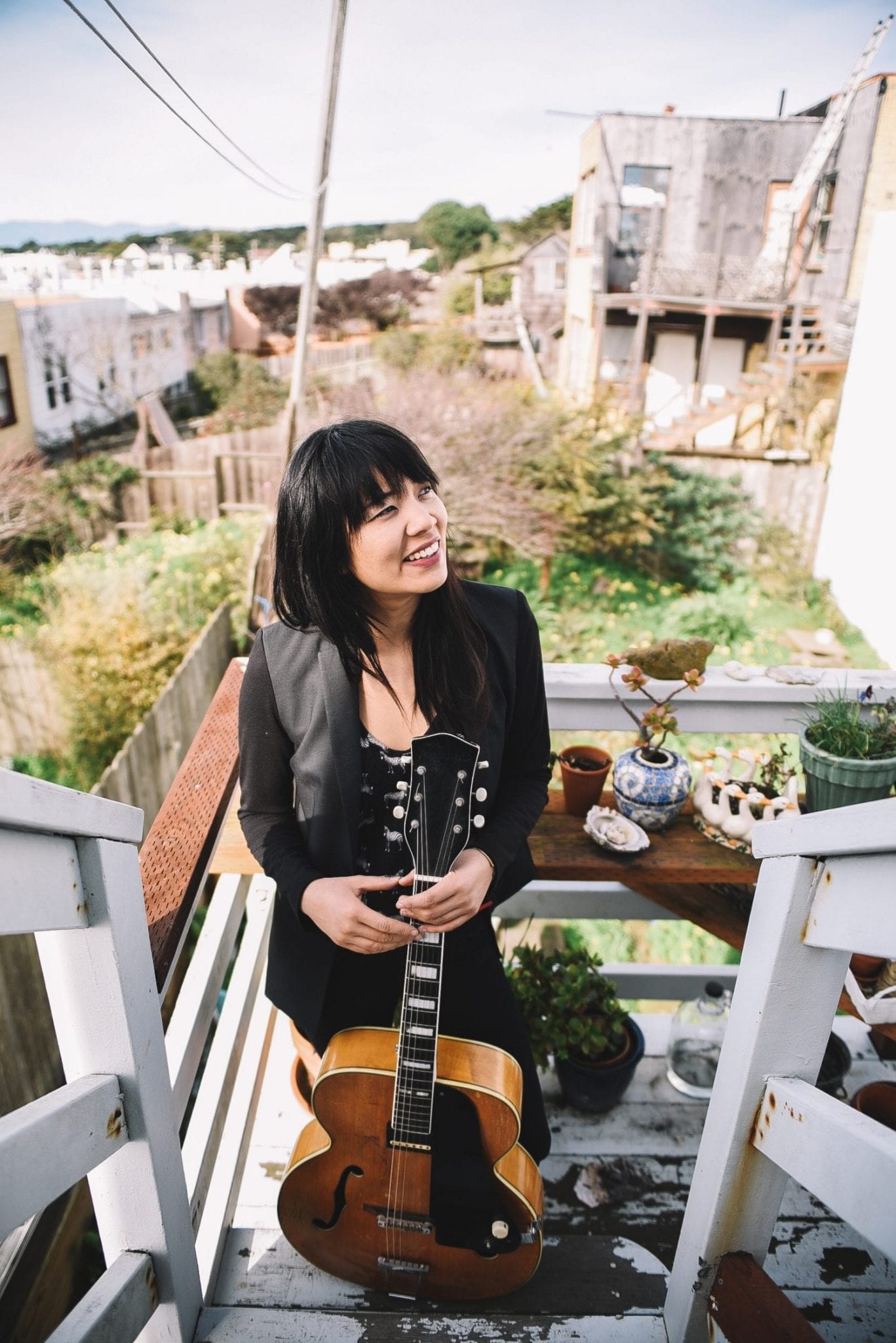
I know that you just said that the focus was less on guitar playing and more on the building of the songs with beats and bass, but what guitar are you currently playing?
In a way it’s the most guitar and instrument-centric album that I’ve made. After the band had [finished] with the basic tracking … [it was] just basically myself and our sound engineer at the board, and we were looped through a bunch of crazy shit, and there was this amazing freedom to it. This record was by far the most fun to play guitar, mandolin, and banjo on. I typically play a National Hollowbody but the neck doesn’t allow for a lot of lead stuff. I’m not precious about whatever guitar it is, but there was a Danelectro, some kind of Japanese guitar, my Eastwood mandolin that I tour with, a Bill Nash ‘52 Tele, and a Silvertone. We used a lot of the EarthQuaker pedals [too].
It sounds like you got a chance to experiment with a lot of different things?
We all did. There was time carved out for everybody to incorporate things they’d never worked with and all playing live in the studio and getting the right vibe and feel for the arrangements. Merrill would send out inspirational photos in the morning every day. It just was like a very sweet and fun nest.
I saw that you told one fan who critiqued your performance by how much you were or weren’t smiling that you “don’t give one fuck.”
[Laughs] That was so interesting because I don’t really like the internet, but I was so livid, I could not not react. I think that for every time you see a woman react, that is like the one-millionth time it’s happened and you physically cannot take one more ounce of bullshit, even though we’re socialized to take a lot.
There’s this assertion and aggression I have on stage that I really value, and it’s because you want young girls to know you can lose your shit. You can do that in front of people and you can scream and you can be out of your mind and you don’t have to maintain this demure whatever-it-is that people would feel more comfortable with.
I think a lot of that also has to do with growing up within an Asian culture that places a high premium on obedience and being diminutive. When we played shows in Vietnam this past summer, I was like a rabid animal on stage because it was important for me to buck those stereotypes and those expectations in front of young women. I know that culture, I was raised in it, and that was an amazing opportunity to be a part of that conversation and show a different way.
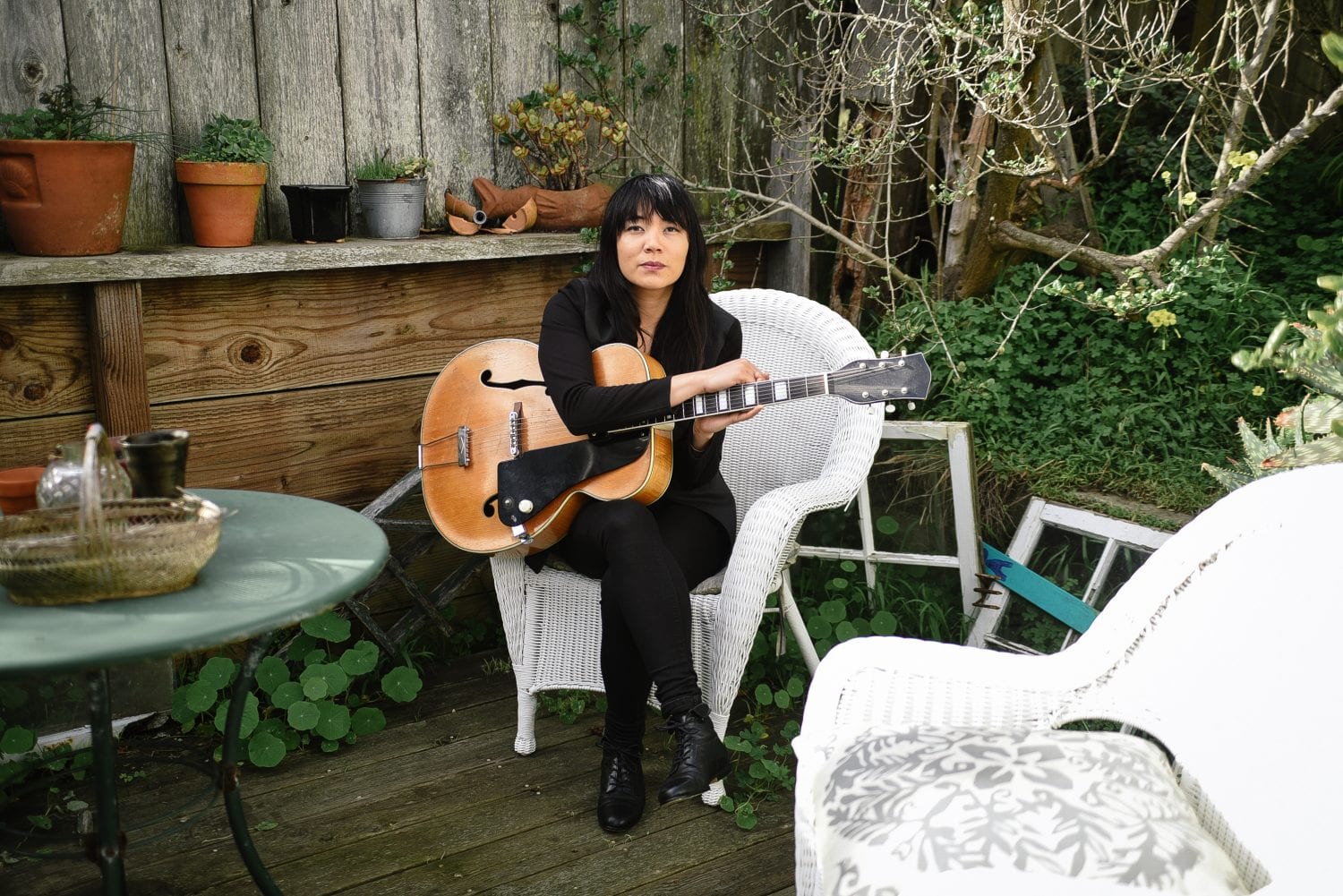
Have you gotten a chance to speak with some of your fans about modeling that for them?
Not ever in depth. When I was first starting out, it was so much about me and my ethnicity. I was really turned off to that. But now I’ve seen that it’s just really important to bolster that part of it as well, just so that there’s an example of someone—a woman of color—doing something that may or may not be within the realm of what is expected.
Did you have somebody who offered that same visibility?
No, and that’s why I thought it would be cool to be a part of that. If anyone wanted to look to me, then I would be available. I grew up in the suburbs of DC, in Northern Virginia, and the push to assimilate and the kind of pervasive pressure to be like everybody else shifts your internal narrative so that you don’t embrace this really important part of your identity. It took a long time to want to learn about my family, to want to go to Vietnam and appreciate the experience of my parents trying to make a life here, in a place where they were essentially second-class citizens, and to do it without the language, and to give us a life where we could just do whatever we wanted. [It] was amazing, but it took awhile for me to get there.
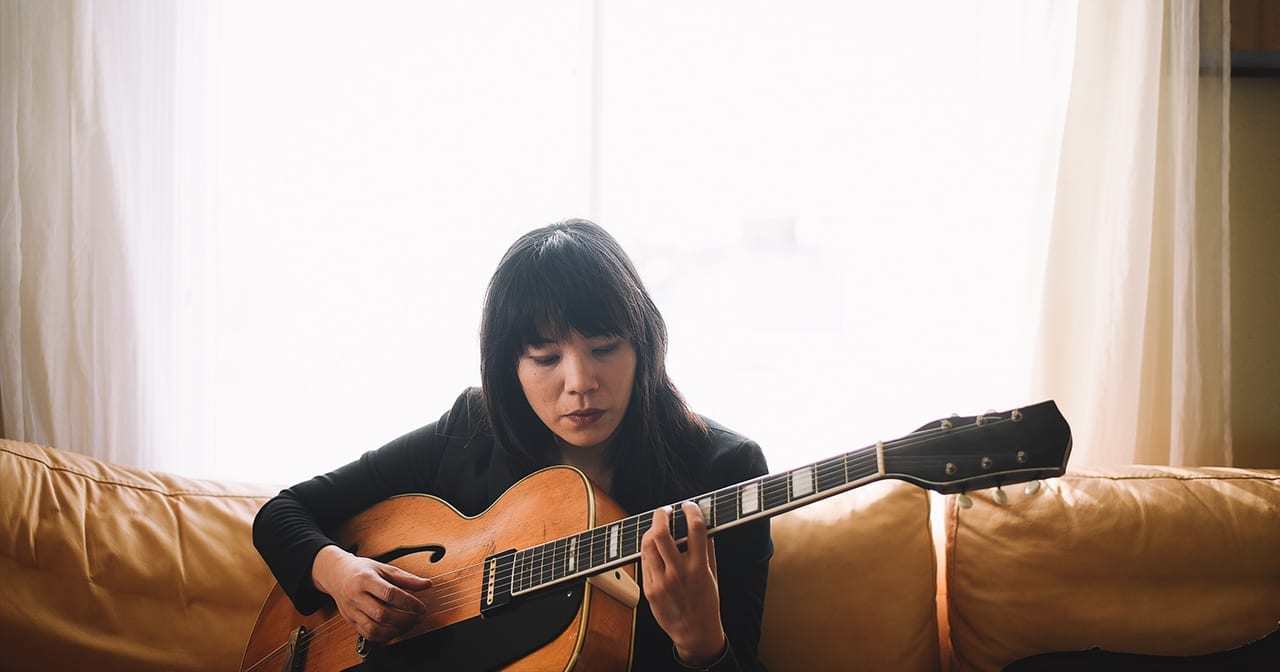

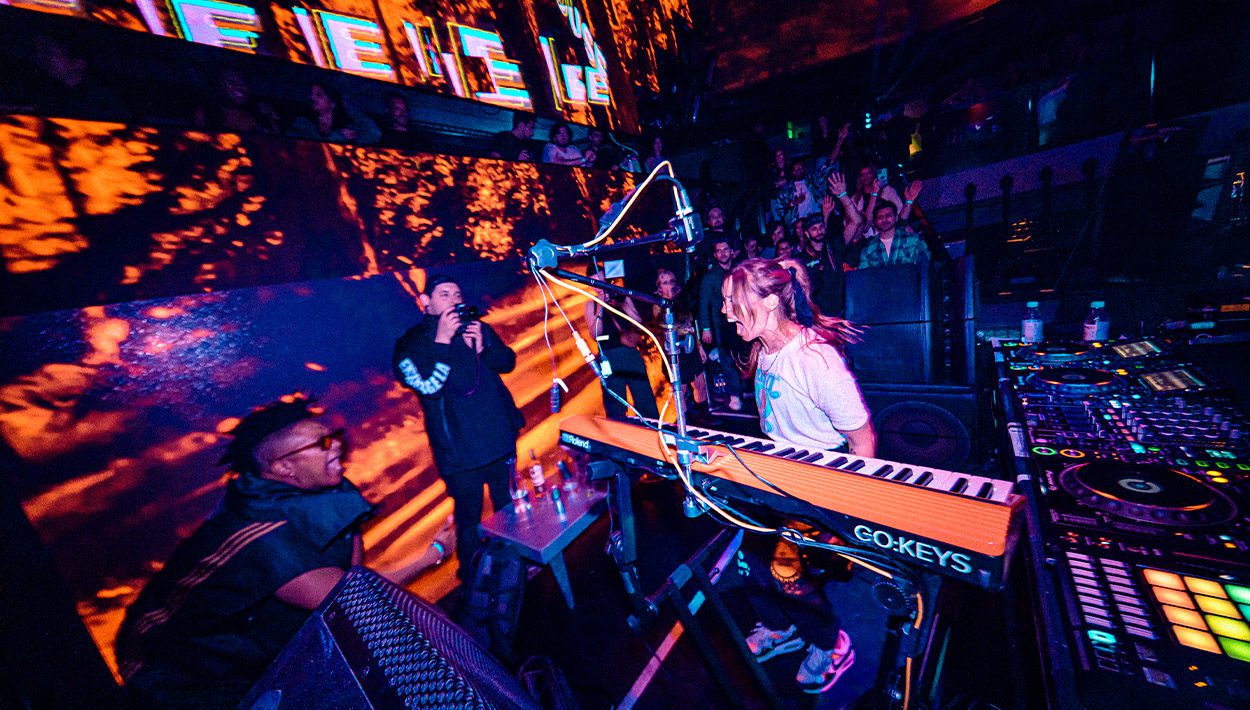
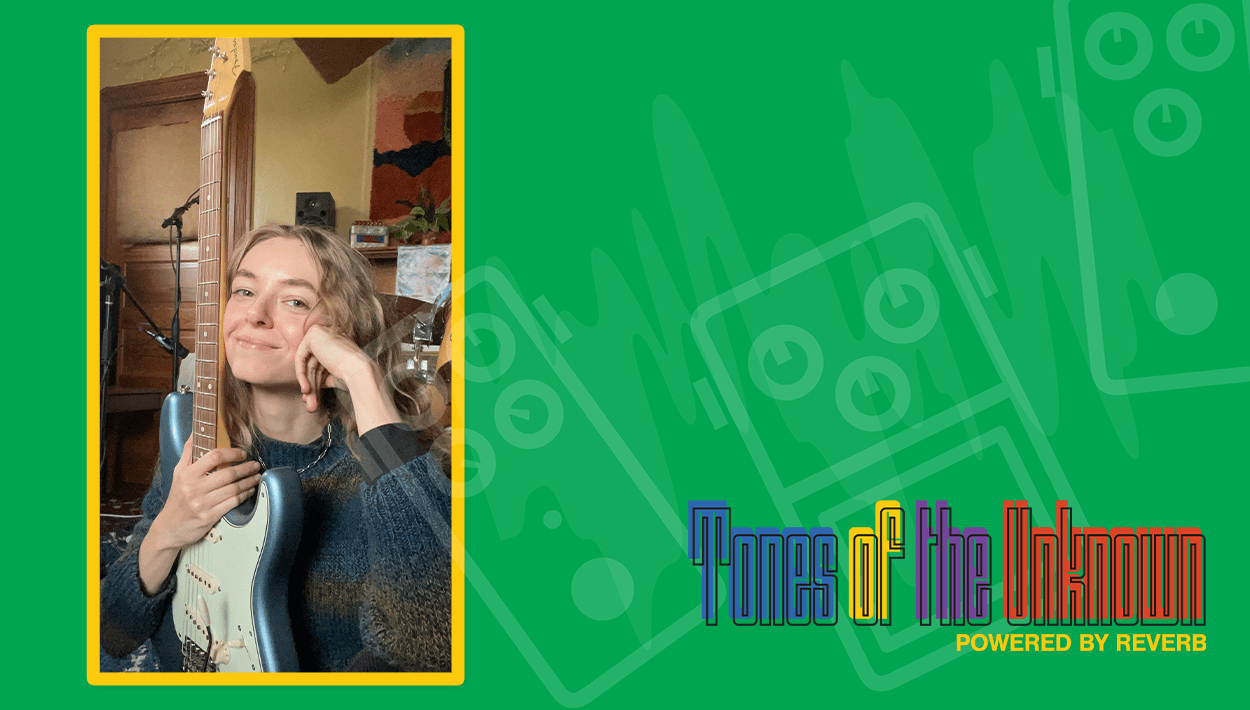
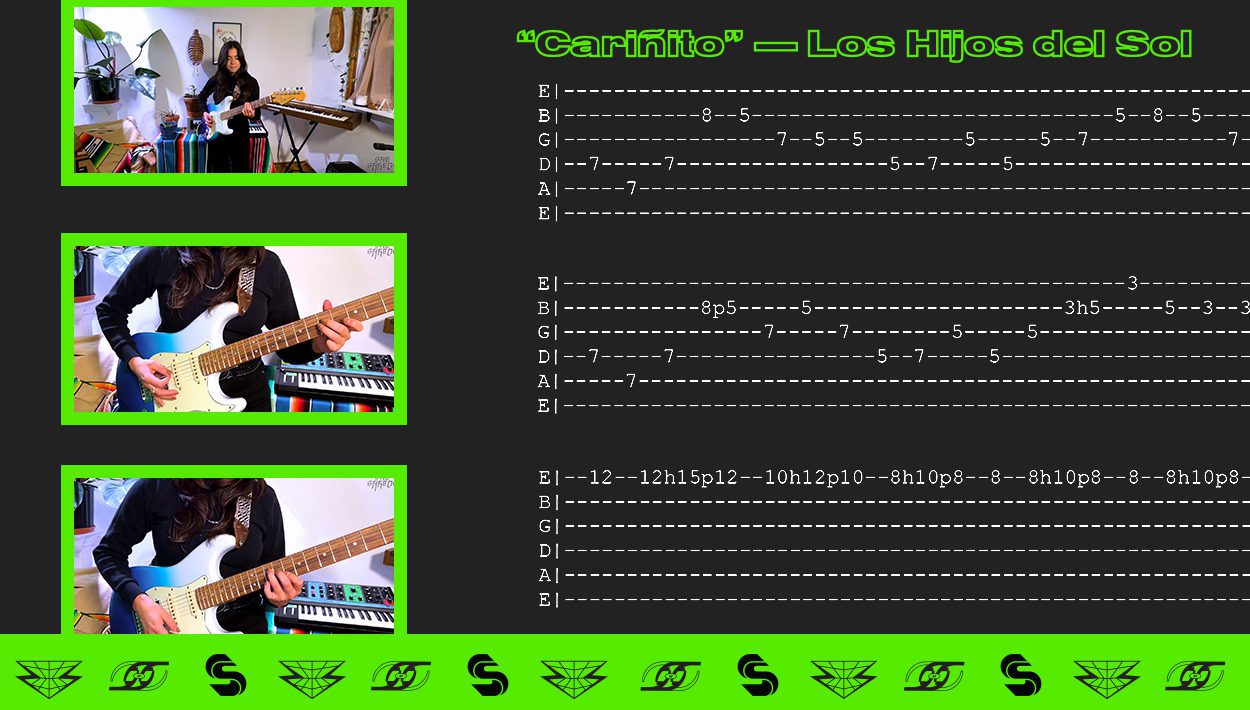
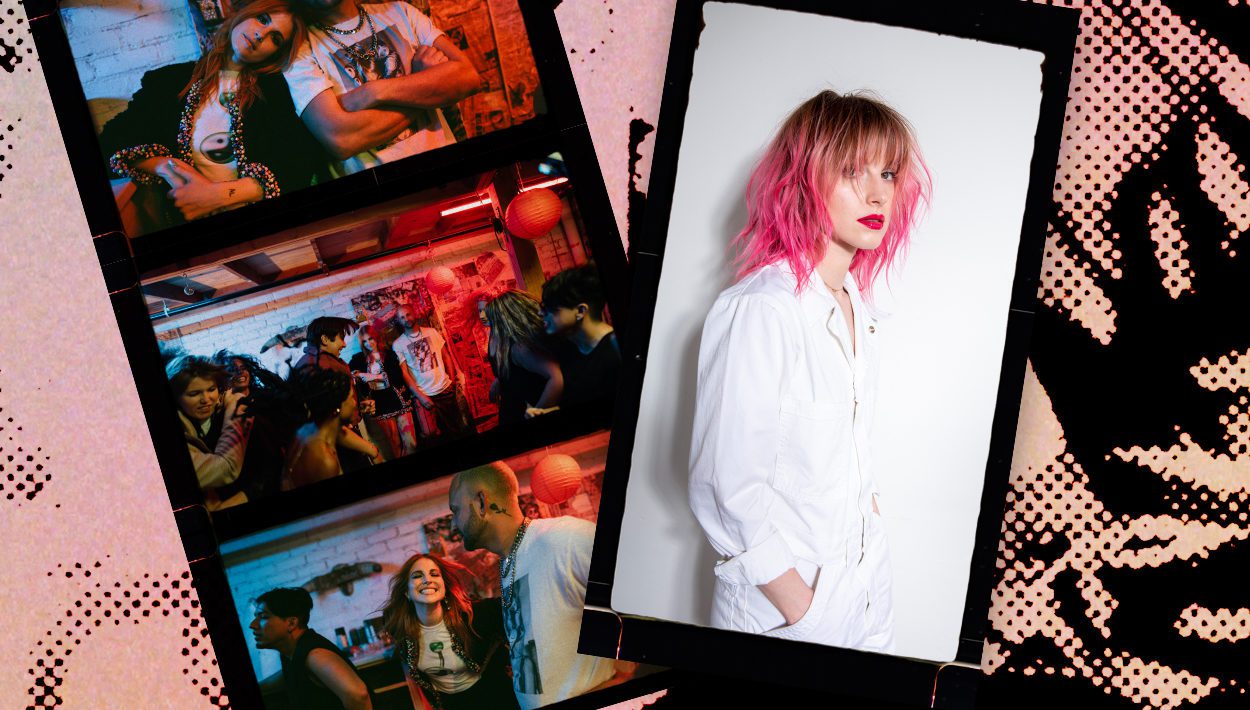
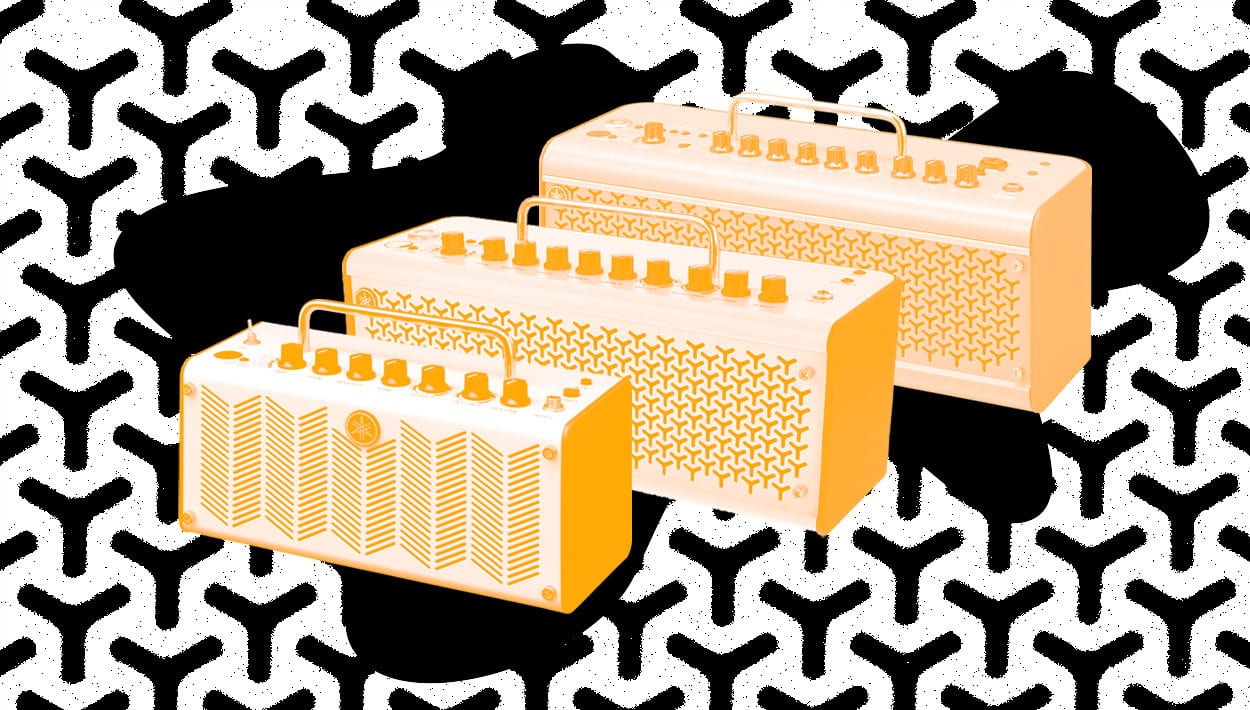
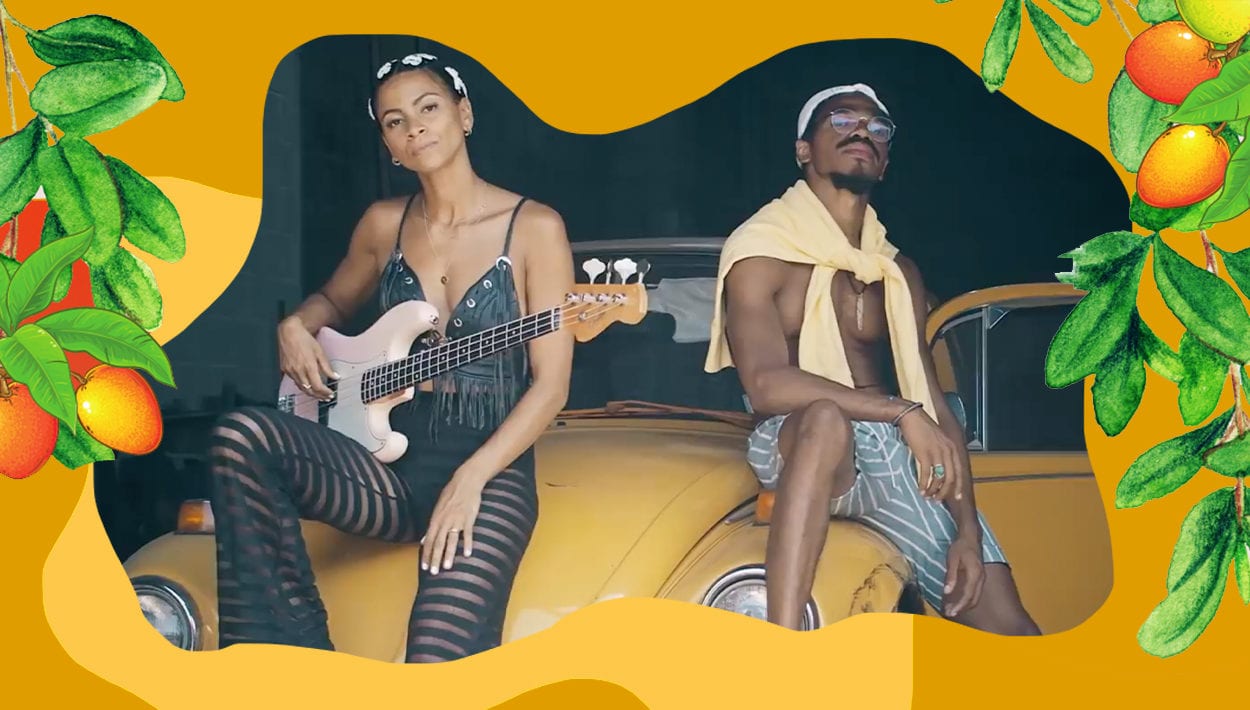
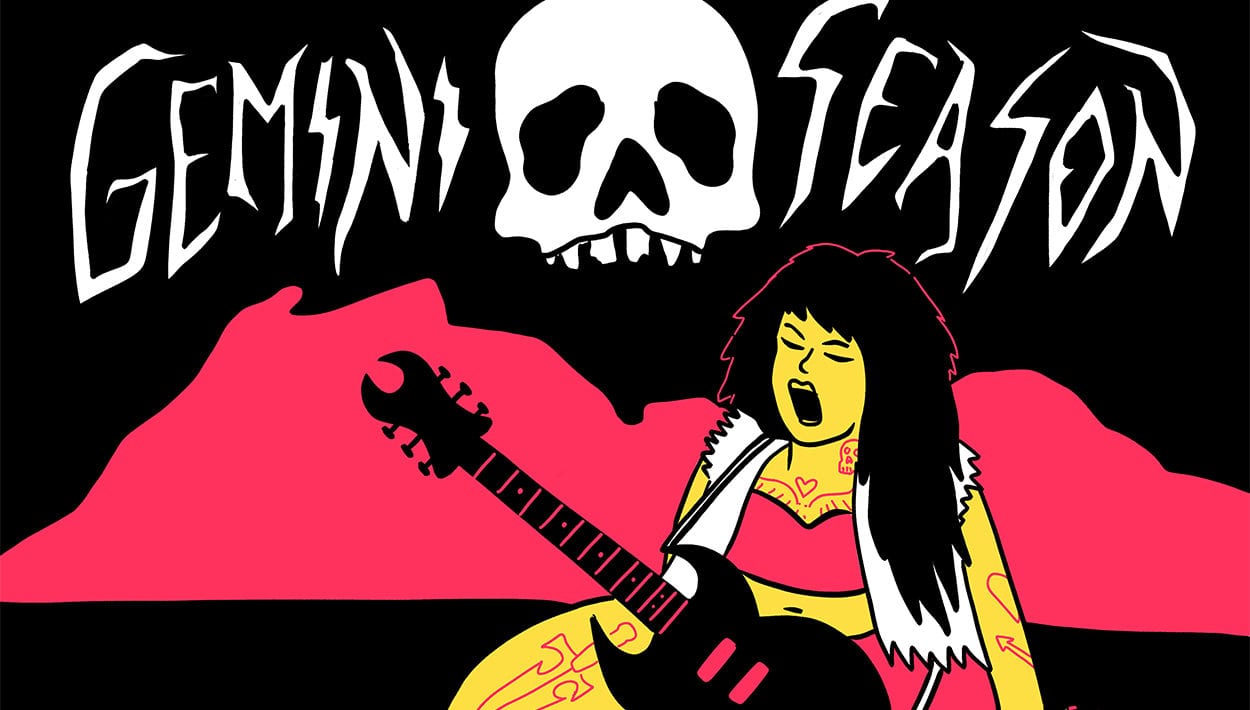
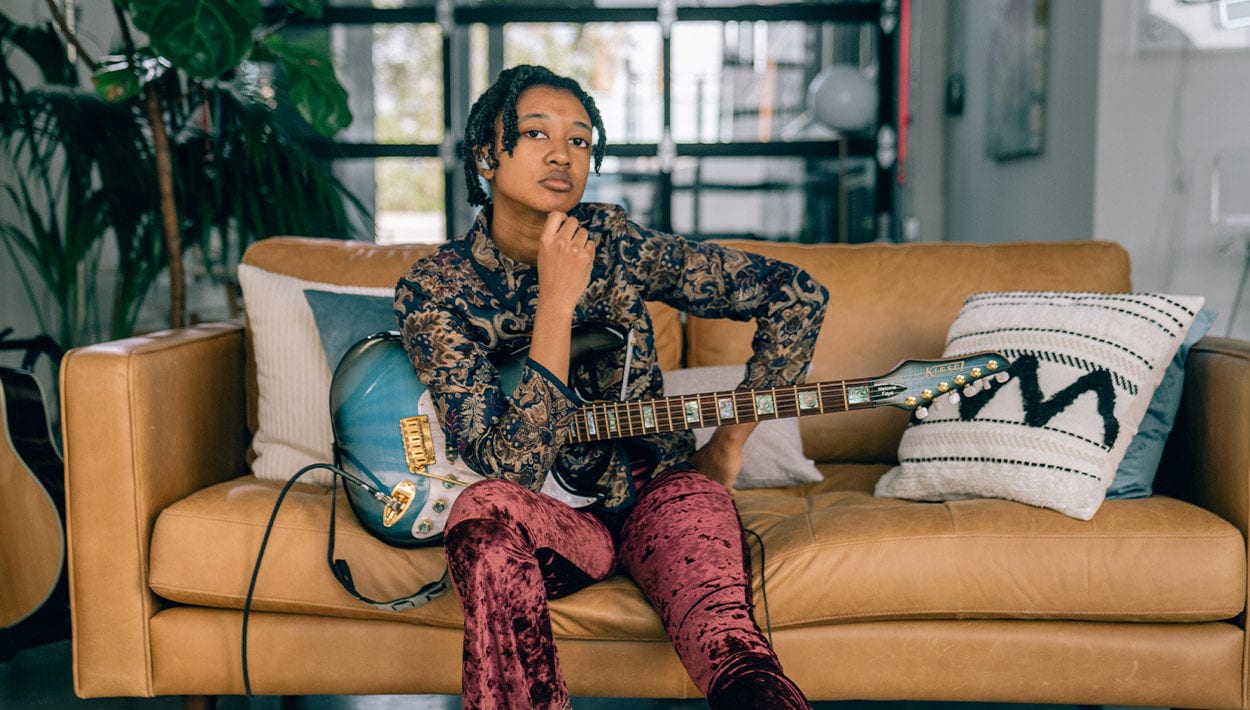
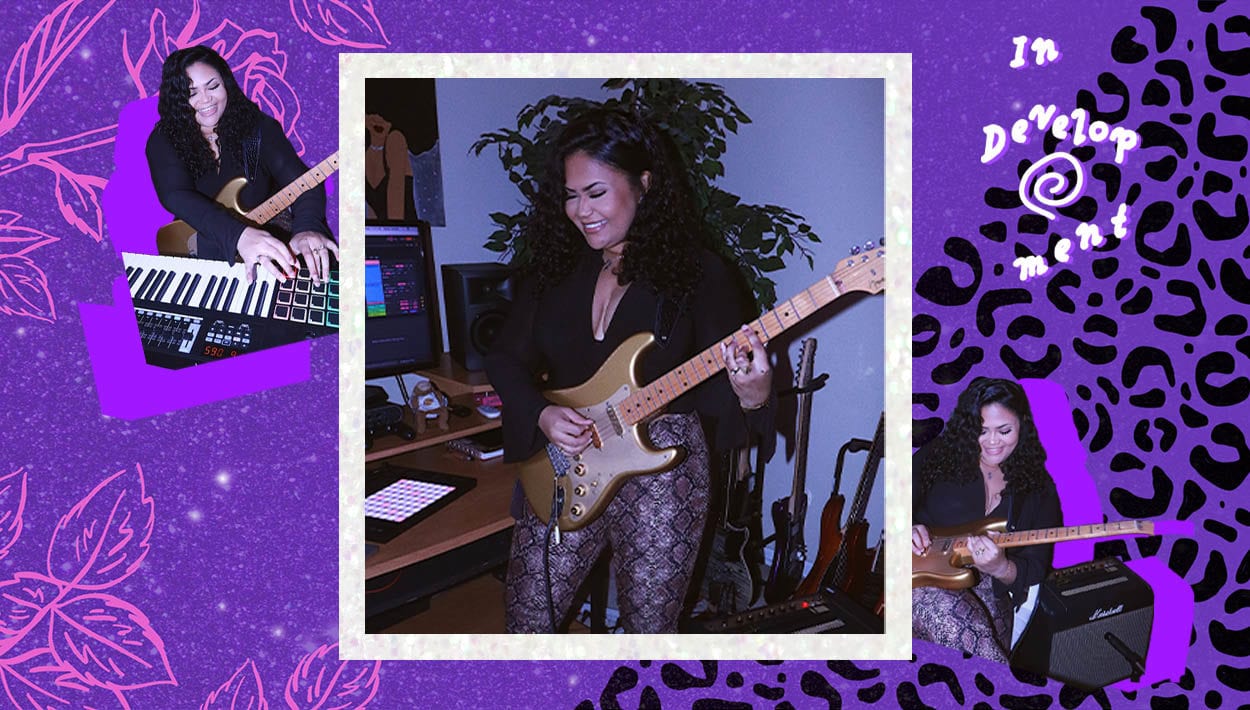
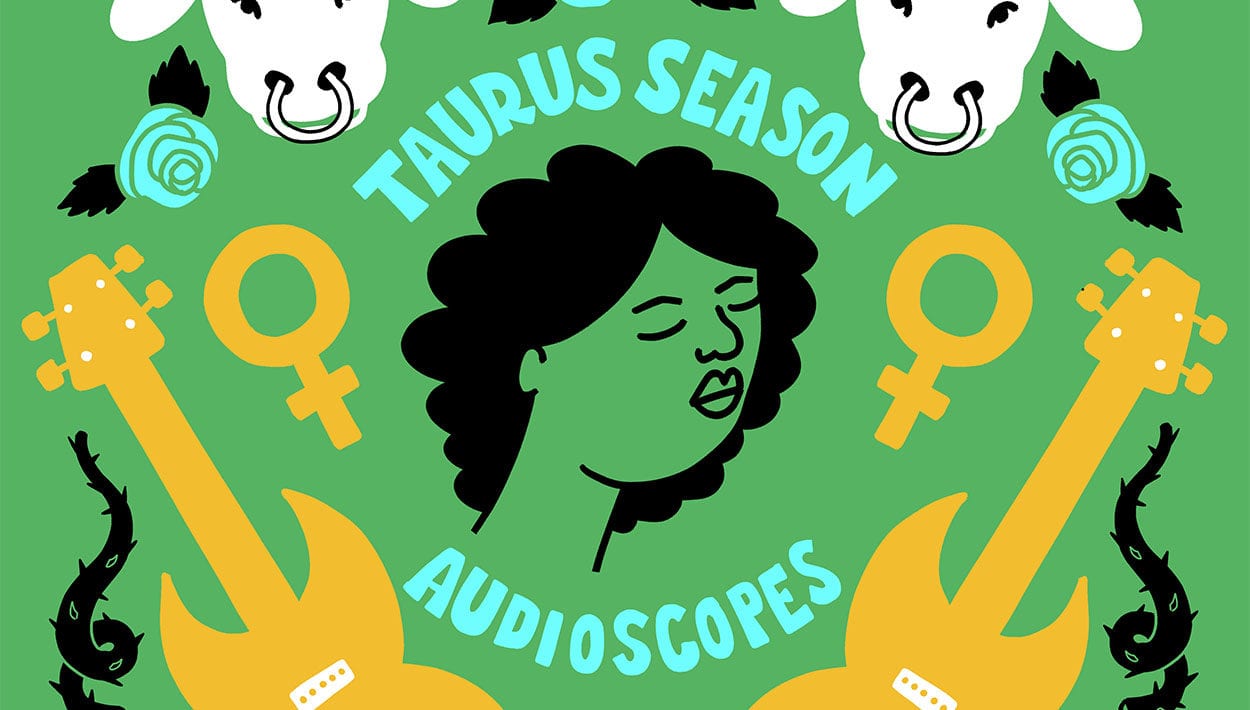


Comments
[…] deliberate and breathtaking record, she also works personal philosophy into her performance. In an interview for She Shreds, Thao says, “There’s this assertion and aggression I have on stage that I really value, and […]
Pingback by Thao and the power of feminine anger | WIUX on February 4, 2017 at 8:59 pm[…] Cate Le Bon, Thao and the Get Down Stay Down… some of our favorite musicians use Copperpeace guitar straps, so of course we’re here […]
Pingback by She Shreds Media on June 16, 2020 at 5:09 pm